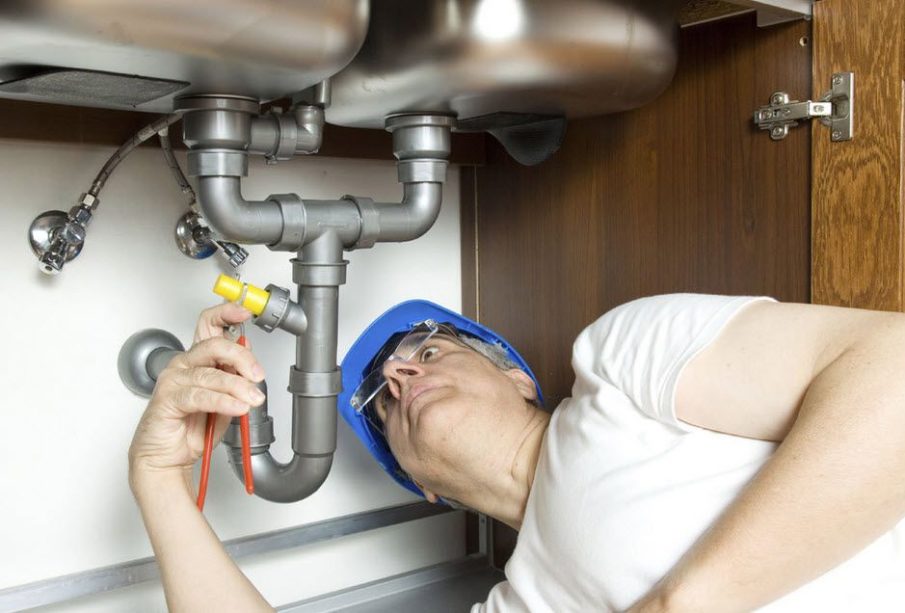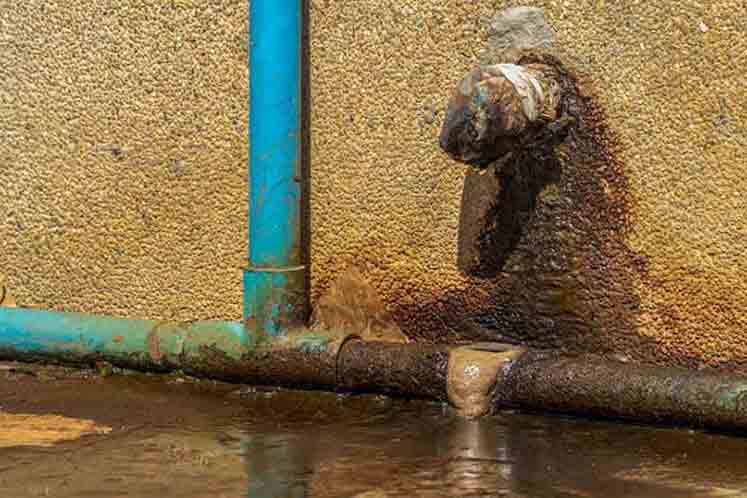The Homeowner’s Guide to Plumbing Issues in Older Homes
The Homeowner’s Guide to Plumbing Issues in Older Homes
Blog Article
What're your ideas concerning Plumbing Issues in Older Properties and How to Fix Them?

Older homes usually include beauty, character, and background, but they can additionally bring a host of plumbing concerns. Whether you're handling maturing pipes, low tide stress, or leaks, knowing just how to attend to these common issues is important to maintaining a safe and useful home. In this overview, we'll check out the typical pipes challenges dealt with by older homes and provide useful solutions to maintain your pipes in top form.
Understanding Usual Plumbing Concerns
Aging Pipes
Among one of the most typical concerns in older homes is aging pipes. Depending upon the period in which your home was built, the pipelines might be made from materials that have actually deteriorated over time, such as galvanized steel, cast iron, and even lead. These products can rust, come to be weak, or develop leaks, leading to water damage and prospective carcinogen.
Water Top Quality Testing
Older pipes can impact the top quality of your water. Conduct a water quality test to look for impurities such as lead, corrosion, or various other impurities that may be presented by maturing pipes.
Solutions for Common Plumbing Issues
Replacing Aging Pipelines
If your home has old, degrading pipes, consider replacing them with contemporary products like copper or PEX. This can be a considerable financial investment, yet it will certainly avoid future problems and enhance the security and integrity of your pipes system.
Taking Care Of Low Tide Pressure
To repair low water pressure, start by cleaning or replacing old components and removing mineral accumulation in the pipes. If the problem persists, it may be necessary to replace sections of rusty pipes.
Repairing and Changing Dripping Pipelines
For little leakages, you can utilize pipe clamps or epoxy putty as a momentary fix. However, it's best to replace leaking pipes completely to prevent more damage.
Updating Fixtures
Upgrading old fixtures to contemporary, water-efficient versions can improve your home's plumbing efficiency and minimize water usage. Try to find components with the WaterSense label for the best efficiency.
Dealing with Pipeline Rust
If your pipes are corroded, changing them with corrosion-resistant products like copper, PVC, or PEX is the very best service. Regular assessments and water high quality maintenance can help prevent better deterioration.
Low Water Stress
If you're experiencing low tide pressure, it could be as a result of natural resources, corrosion inside the pipelines, or old fixtures that are no longer functioning successfully. This can be a major inconvenience, specifically in areas like showers and sinks.
Leaking Pipelines
Leakages are one more constant problem in older homes, frequently brought on by corroded or damaged pipelines. Also tiny leakages can cause significant water damages, mold growth, and raised water expenses otherwise attended to promptly.
Obsolete Components
Obsolete pipes components such as faucets, commodes, and showerheads not only look old but might likewise be less effective, susceptible to leaks, or incompatible with modern-day plumbing criteria.
Pipe Deterioration
Deterioration is a common trouble in older pipes, especially those made from galvanized steel or actors iron. Corroded pipelines can limit water circulation, cause staining, and at some point result in leakages or pipe ruptureds.
Evaluating the Condition of Your Pipes
Inspecting Noticeable Pipelines
Start by checking any kind of visible pipes in your home, such as those in basements, crawl spaces, or under sinks. Try to find indications of deterioration, leaks, or corrosion, which can show underlying problems.
Checking for Leakages
Check for leaks by evaluating areas around taps, commodes, and under sinks. You can also check your water meter prior to and after a period of no water utilize to discover surprise leaks.
When to Call an Expert
While some pipes concerns can be handled with DIY solutions, there are times when it's finest to call a professional. If you're taking care of significant leakages, extensive rust, or are unclear about the condition of your pipes, an accredited plumber can offer skilled analysis and repair.
Preventive Maintenance Tips
Routine Assessments
Consistently inspect your plumbing system for signs of deterioration. Capturing problems early can stop pricey fixings down the line.
Water Stress Law
Ensure your water pressure is within the recommended variety to prevent worrying your pipes and fixtures. A plumbing can set up a stress regulatory authority if needed.
Water High Quality Maintenance
Install water filters or softeners if your water quality is poor. This can protect your pipes and fixtures from damages brought on by tough water or impurities.
Positive Pipe Substitute
If your home has very old pipes, consider aggressive substitute prior to major issues occur. This can save you from emergency fixings and water damages.
Final thought
Handling plumbing concerns in older homes calls for a mix of caution, precautionary maintenance, and prompt upgrades. By comprehending the typical difficulties and recognizing when to seek expert aid, you can guarantee your plumbing system continues to be practical and trustworthy for many years ahead.
Common Plumbing Issues in Older Homes
Pipe corrosion
Pipe corrosion is a common plumbing issue in older homes. Several factors can cause pipes to corrode:
Water: Ironically, water is the number one cause of pipe corrosion. When water seeps into cracks in pipes, it can cause the metal to rust and break down, leading to leaks or even burst pipes.
Oxygen: Oxygen is another significant culprit in pipe corrosion. When oxygen interacts with water, it can cause the metal to oxidize and weaken.
Chemicals: Chemicals such as chlorine and fluoride can also contribute to pipe corrosion. These chemicals can react with the metal in pipes, causing them to break down over time.
Leaky pipes
Pipes that leak is one of the most common plumbing issues plaguing residents of older houses. While a small leak may not be a problem initially, it can lead to significant problems if left unaddressed. In addition, water damage can be very costly to repair and may cause damage to electric fixtures, promote mold growth and cause many other issues.
Worn-out fixtures
Older homes often have worn-out fixtures which may need replacement. Over time, the finishes on fixtures can wear down, exposing the underlying metal to corrosion. This can cause fixtures to leak or even break completely. It s best to have a professional plumbing contractor regularly inspect the fixtures in older homes and replaces them if necessary.
Faulty water heaters
A leaky water heater can cause severe damage to the home as it can be both a flood and fire hazard. Call a plumber immediately if it appears that the water heater might be leaking.
If the heater isn t working correctly, it could be because the pilot has gone out. The pilot light going out may indicate gas supply issues or leaks. It is also worth checking the thermostat to see if it needs to be adjusted.
If the water heater is making strange noises, it could be due to sediment buildup in the tank. Sediment can interfere with the heating elements and cause them to overheat. Overheating can damage the tank and shorten the lifespan of the water heater.
https://www.norfleetfamilyplumbing.com/blog/common-plumbing-issues-in-older-homes

Hopefully you liked our piece about Plumbing Issues in Older Properties and How to Fix Them. Many thanks for taking the time to browse our article post. Sharing is nice. Helping others is fun. We take joy in reading our article about Main Plumbing Issues Found in Old Houses.
Click Here! Report this page